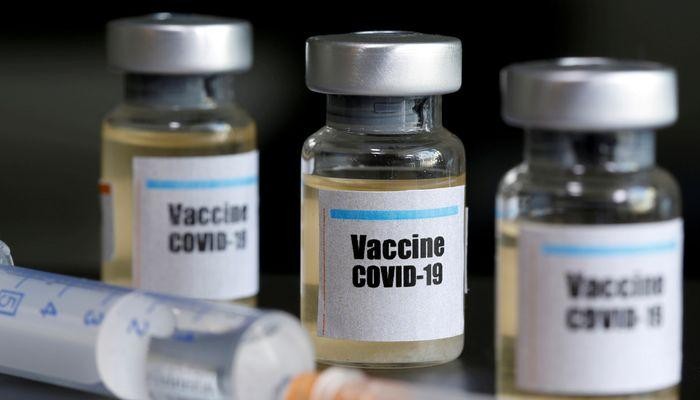
WASHINGTON: France and Germany's announcement of a half-trillion-euro European fund and encouraging early results in the search of vaccine by a US biotech firm on Monday has led investors to believe that the economic fallout from the coronavirus can be handled.
Global markets surged as Europe pushed towards normality with major landmarks reopening after a two-month hiatus, and as China told the World Health Organization it would back an independent inquiry into the handling of the outbreak once the pandemic is "brought under control."
At the White House, President Donald Trump slammed China's handling of the crisis — and dropped a bombshell by revealing he has been taking hydroxychloroquine, an anti-malaria drug that is an unproven treatment against coronavirus.
Trump, who has tested negative for Covid-19, dismissed safety warnings about the drug, saying he is taking it "because I think it's good. I've heard a lot of good stories."
Nearly 4.8 million people have tested positive and 317,565 have been killed by the disease since it emerged in Wuhan, China late last year, according to an AFP tally.
Chinese President Xi Jinping, battling allegations from Washington and elsewhere that his country concealed the scale of the problem, told the World Health Assembly — the WHO's decision-making body — that Beijing had been "transparent" throughout the crisis.
Beijing also offered to share a vaccine once one became available.
But China's main critic, the United States, sharpened the tone at the same talks, accusing the WHO of being too close to Beijing, citing as evidence the continued exclusion of Taiwan from the UN health agency.
Vaccine hope
In the United States, the hardest hit nation, deaths surpassed 90,000 — but all 50 states have begun easing lockdown measures to varying degrees.
In Michigan, car assembly lines cranked up for the first time in two months, with employees wearing masks and enduring temperature checks and social distancing protocols.
And as death and hospitalization rates continue to drop in Europe — Italy's daily death toll fell below 100 for the first time since early March — Europe sought to pick up the pace on its exit from the lockdown.
St Peter's Basilica and the Acropolis in Athens opened their doors to visitors alongside many European shops, restaurants and churches and in Venice, the gondolas returned to the waters, even if the gondoliers wore gloves and masks.
"It's good news, a sign of everyone's desire to get back to normal as soon as possible, but without ever lowering our guard in order to defeat the virus once and for all," said Giovanni Giusto, city councillor for the Protection of Traditions.
Global markets were buoyed meanwhile by the 500-billion-euro ($540 billion) European fund, along with encouraging early results from clinical trials of a potential vaccine by Moderna.
The first stage trial provoked an immune response similar to people convalescing from the COVID-19 disease in eight recipients, according to the company which has a larger phase 2 trial due to begin soon.
Fears for Latin America, Africa
But despite the hopeful signs, recent days have also seen soaring infections in Brazil, India and South Africa, and United Nations chief Antonio Guterres warned the virus' impact on the southern hemisphere could be "even more devastating" than in the north.
India extended its lockdown covering 1.3 billion people to the end of May as its reported infections jumped.
In Latin America, Brazil now has the fourth-highest caseload worldwide at 245,000 confirmed infections and deaths have risen sharply.
Far-right President Jair Bolsonaro has blamed lockdowns for unnecessarily hurting Brazil's economy. He has defied social distancing measures, even as experts and regional leaders warn the country's healthcare infrastructure could collapse.
Ecuador reported the first Covid-19 case in one of its indigenous Amazon tribes, deepening the crisis in one of South America's hardest-hit countries.
Nicaraguan hospital staff have said the nation's health system is overwhelmed with patients suffering from respiratory illnesses.
Relatives have reported that the bodies of loved ones were being carted off in pick-up trucks for "express burials" without their consent.
"Mourners are forced to chase trucks with the coffin to find out where their loved ones are being buried," the opposition National Coalition said in a statement denouncing government secrecy.
There was also grim data in Africa, where the number of infections rose rapidly.
South Africa on Sunday reported 1,160 new coronavirus infections, the highest daily number since the first case was recorded in March, taking the total to 15,515 — the highest on the continent.
And South Sudan's first vice president, the former rebel leader Riek Machar, has tested positive for Covid-19, his office said Monday.
Loans, not grants
The coronavirus has left the world economy facing its worst downturn since the Great Depression. Fresh evidence of the deep damage came when Japan announced its first recession since 2015.
The world's biggest economy is also headed to a massive downturn, US Federal Reserve chairman Jerome Powell warned.
April-to-June data "will be very, very bad," Powell said, adding that the economic hardship "could stretch through the end of next year."
In a gesture of European solidarity, French President Emmanuel Macron and German Chancellor Angela Merkel proposed "borrowing from the market in the name of the EU" to fund 500 billion euros of spending on the 27-strong bloc's "worst-hit sectors and regions".
Countries receiving financing would not have to repay the sum, said Macron.
Northern countries including Germany had until now firmly rejected joint debt in the name of budget discipline — and the plan quickly met resistance from some quarters.
But the relaunch plan was welcomed elsewhere as a sliver of light, with European Central Bank head Christine Lagarde dubbing it "ambitious, targeted and welcome.




Comments
Post a Comment
if you have any doubts. Please let me know